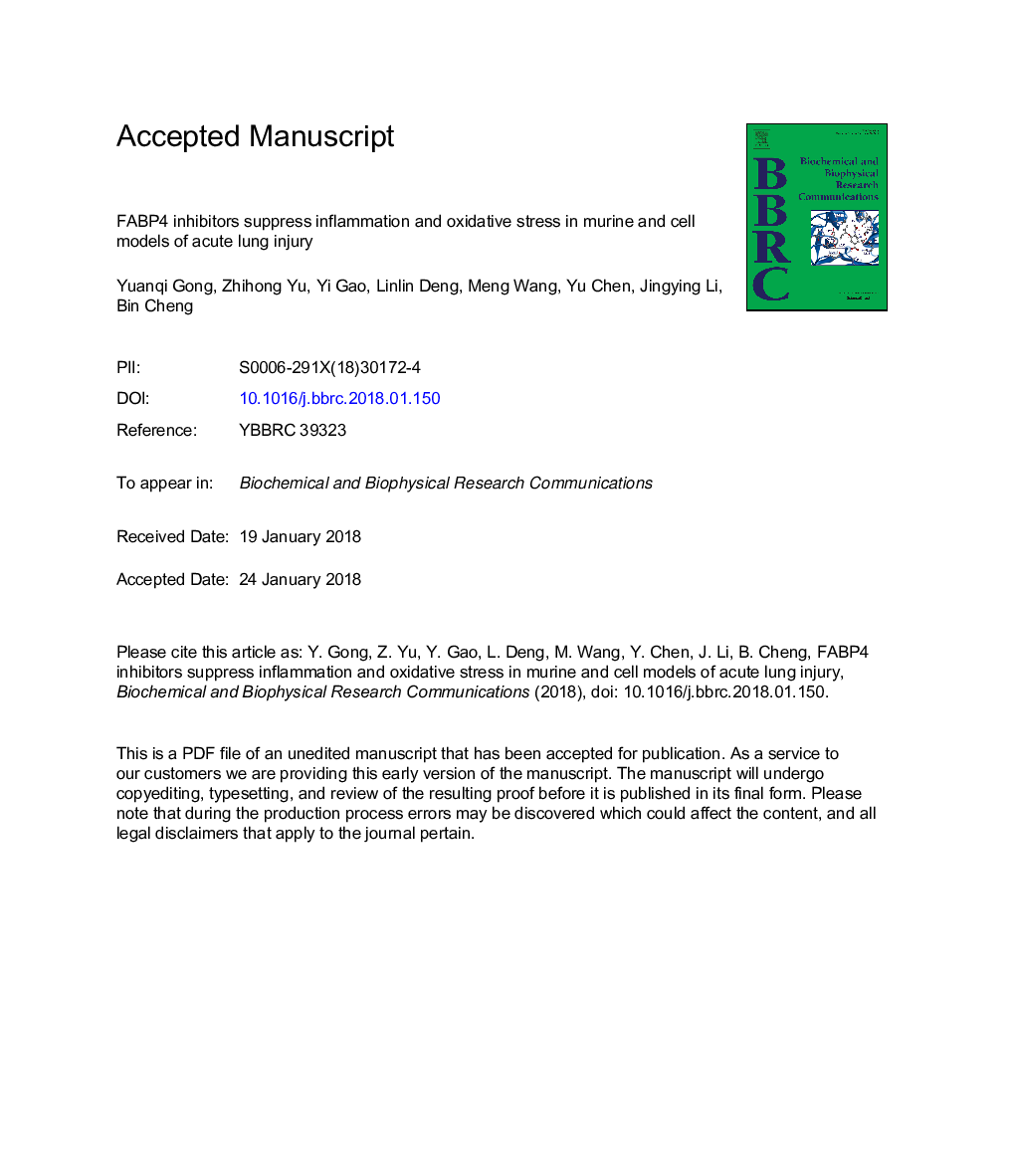| Article ID | Journal | Published Year | Pages | File Type |
|---|---|---|---|---|
| 8294443 | Biochemical and Biophysical Research Communications | 2018 | 29 Pages |
Abstract
Acute lung injury (ALI) is a severe disease with high morbidity and mortality, and is characterized by devastating inflammation of the lung and increased production of reactive oxygen species (ROS). Recent studies have indicated that fatty acid binding protein (FABP4) is important in the regulation of inflammation. However, the role of FABP4 in sepsis-related ALI, and the specific mechanism of action have not been examined. In vitro, the exposure of human alveolar epithelial A549â¯cells to lipopolysaccharide (LPS) and recombinant FABP4 (hrFABP4) resulted in the production of pro-inflammatory cytokines, inflammatory cytokines, and ROS, while these changes were ameliorated by pretreatment with the FABP4 inhibitor BMS309403 and FABP4 siRNA. Sequentially, treatment of A549â¯cells with N-acetylcysteine (NAC) significantly attenuated LPS and hrFABP4-induced the generation of ROS and the release of inflammatory cytokines. In vivo, a cecal ligation and puncture (CLP)-induced ALI murine model was successfully established. Then, the mice were treated with FABP4 inhibitor BMS309403. The results showed treatment with BMS309403 improved the survival rate of CLP-induced ALI mice, and prevented lung inflammation, histopathological changes, and increase of FABP4 induced by CLP. These data indicate that FABP4 plays an important role in lung inflammation of sepsis-induced ALI. Blockade of FABP4 signaling exhibits a protective effect in a CLP-induced ALI mouse model, and in A549â¯cell LPS specifically induces enhanced expression of FABP4, which then causes inflammatory cytokine production by elevating the ROS level.
Related Topics
Life Sciences
Biochemistry, Genetics and Molecular Biology
Biochemistry
Authors
Yuanqi Gong, Zhihong Yu, Yi Gao, Linlin Deng, Meng Wang, Yu Chen, Jingying Li, Bin Cheng,
